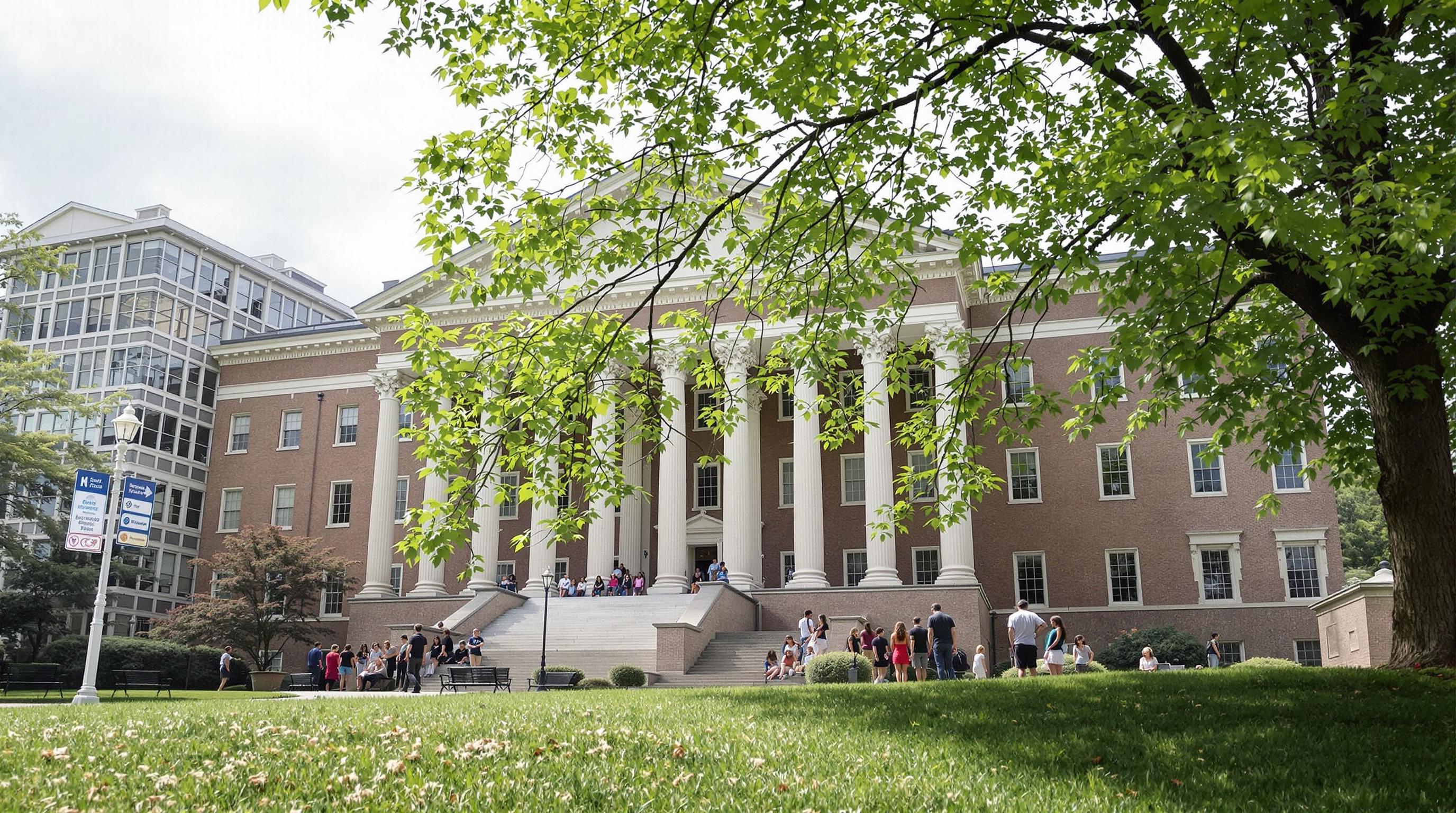Featured Articles
- 9 Hidden Financial Aid Opportunities Every College Applicant Should Explore Before Applying
- From Drones to Diversity: The Surprising Role of Tech in Shaping Modern College Admissions Strategies
- How Midnight Email Strategy and Timing Secretly Influence College Acceptance Odds More Than You Think
- "Micro-Majors: The Rise of Niche Fields and Their Impact on College Admissions Trends"
- The Impact of AI-Generated Essays on Authenticity in College Admissions: A New Frontier or a Recipe for Disaster?
The Rise of 'Acceptance Anxiety': How Fear of Rejection Shapes Today's College Applicants
The Rise of 'Acceptance Anxiety': How Fear of Rejection Shapes Today's College Applicants
The modern college admissions process has evolved into a multi-faceted ordeal, but at its core lies a new psychological phenomenon: “acceptance anxiety.” This anxiety stems from an overwhelming fear of rejection that shapes the decisions and experiences of today’s college applicants, altering their choices and impacting their mental health.
Understanding Acceptance Anxiety
Acceptance anxiety is not just a buzzword—it's a palpable emotional state that many students experience in the run-up to college application deadlines. The drive to get into prestigious colleges has reached fierce proportions, especially among high school seniors who see acceptance as a gateway to success. According to a 2021 report by the National Center for Education Statistics, over 19.4 million students applied to colleges in the United States, an increase of approximately 10% from previous years. This hyper-competitive environment creates a breeding ground for anxiety and fear.
A Personal Story
Let’s take a look at Ava, an 18-year-old high school senior and an über-involved student with a GPA of 4.3. Despite her impressive qualifications, she feels paralyzed by the fear that she won’t be accepted into her dream school. “Every time I think about it, I just feel this knot in my stomach,” she confesses, pacing her room as she scrolls through social media, seeing everyone else’s accomplishments. Ava’s experience is far from unique; many students today are measuring their worth based on acceptance letters.
The Social Media Effect
Social media amplifies acceptance anxiety by showcasing success and failure in vivid detail. A staggering 88% of teens use some form of social media, and platforms like Instagram and TikTok are flooded with stories of students getting into Ivy League schools or winning college scholarships. These curated portrayals create a distorted reality, causing students like Ava to constantly compare themselves to others. “I can’t scroll through my feed without feeling inadequate,” she says, reflecting on how these pressures contribute to her anxiety.
Statistics on Mental Health
A study by the American Psychological Association found that nearly 60% of college applicants reported feeling immense pressure to succeed during the admissions process. They face a barrage of competing pressures—grades, extracurricular activities, personal branding—all while managing their mental health. In the midst of this chaos, many find themselves sidelining their true interests for something that might catch an admissions committee's eye.
This Generation's Reality
Interestingly, there is a pervasive sentiment among today’s youth that their self-worth hinges on college acceptance rates. A recent survey from the Pew Research Center showed that 76% of high school students feel that getting into a good college will determine their future success. The prevailing message is clear: no acceptance letter? No future. The juxtaposition of potential and perceived inadequacy often lays the groundwork for psychological stress.
Reframing the Narrative
To combat this rise in acceptance anxiety, reframing the college admissions narrative is essential. Instead of viewing college acceptance as the ultimate goal, schools, parents, and society at large can emphasize personal growth and exploring one's interests. Consider the University of California system, which has adopted a holistic review process that accounts for student achievements beyond grades and test scores. This approach helps take some pressure off students, allowing them to express their true selves in their applications.
Breaking the Cycle
There’s a push towards normalizing discussions around mental health within the context of college admissions. Schools are beginning to provide resources like counseling services dedicated to helping students navigate these challenges. For example, programs at schools like Harvard University include workshops titled "Navigating the Admissions Process with Mindfulness," aimed at reducing anxiety and promoting the importance of mental well-being.
A Lighter Perspective
Some students, however, have learned to cope with acceptance anxiety in humorous ways. Take James, who decided to apply to the most obscure colleges he could find—like the "University of Phoenix" and "DeVry University"—under the mantra “Reject me, and I’ll still be great!” His lighthearted approach reminds us that acceptance isn’t the only validate of one's worth. James jokes, “If I got into a school and still couldn’t fix a cup of coffee, what’s the point?”
The Role of Parents
Another crucial aspect of acceptance anxiety often hinges on parental expectations. Surveys reveal that 89% of parents believe that college plays a significant role in their child’s success, with many pushing their kids towards relentless academic achievement. While guidance is essential, too much pressure can backfire. Many students feel obligated to fulfill their parents’ dreams rather than their own, fuelling further anxiety.
Real-World Programs
Some organizations are working to alleviate the burdens on both students and parents. One such initiative is the College Board’s “Careers in the Classroom” program, aimed at helping families understand college as just one of many paths to success. Programs like these can lessen the pressure by showcasing that fulfillment and happiness can come from various life experiences, not just a college degree.
Finally, Let’s Talk About Strategies
So, what can be done to lessen acceptance anxiety? Here are a few practical strategies:
- Focus on Interests: Students should choose colleges based on personal fit rather than prestige alone.
- Mindfulness Practices: Incorporating mindfulness techniques can significantly reduce anxiety levels.
- Open Discussions: Creating a culture where students can openly express fears about rejection can lessen the burden.
- Less Stress on Grades: Schools should market balanced lives over straight A's.
Conclusion
The stakes for today's college applicants have never been higher, fraught with pressures that lead to acceptance anxiety. However, by reshaping narratives and fostering supportive environments, we can help students take a breath—and remember their worth is not defined by a letter in the mail. Instead, it's rooted in their character, resilience, and creativity, aspects that often flourishes outside the confines of an acceptance letter.
Ava, after much contemplation and the application of some mental health strategies, finally recognized that no matter where she ends up, her journey is uniquely hers. Key learnings from her acceptance anxiety made her anxious to embrace the unexpected. “If rejection comes, I know I’ll still find my way,” she asserts, advice that could benefit all today’s budding scholars.




